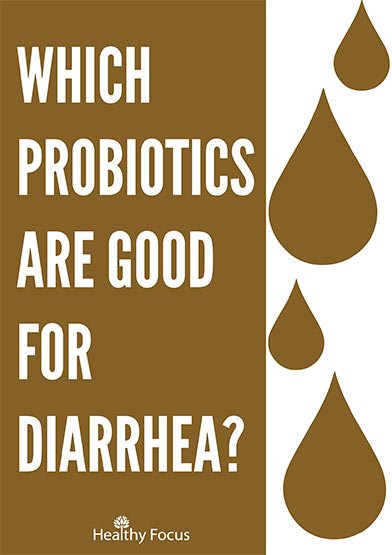Last Updated on November 26, 2018 by Marc Seward
The benefits of probiotics are quickly gaining attention. Many who are looking to boost their immune system, improve digestion or just even look out for their overall health are turning to the aid of probiotics.
But is the hefty price of some probiotic supplements or loading up on probiotic rich food worth the hype? So far, studies are mixed, particularly when it comes to diarrhea and other gastrointestinal issues.
What are Probiotics?
So is it true that probiotics are live bacteria that infiltrate your gut? Yes! But it’s not as creepy or harmful as it seems. In fact, there is a colony of good bacteria that live in your gut, helping to maintain a balance to keep you healthy and your digestive system running smoothly.
Sometimes this balance gets thrown off by taking antibiotics, stress, or illness. By taking probiotics or eating food rich in these good strains of bacteria, you can help restore the population of good microorganisms in your gut.
Can I take Probiotics for Diarrhea?
Yes, it might seem that taking live bacteria to deal with a bad bacteria defies common sense. But it’s all about balance–many times diarrhea is caused by taking certain antibiotics–which kill off both good and bad bacteria, creating dysbiosis leading to diarrhea. Probiotics can address the root cause of diarrhea instead of just easing or masking the symptoms–like immodium does.
What are the Reported Benefits of Probiotics?
Probiotics promise many things. You may hear claims that probiotics will help treat everything from diarrhea to liver disease. Some experts claim that probiotics will help treat the following health problems:
- Digestive issues such diarrhea, antibiotic-induced diarrhea, colitis, inflammatory bowel disease, and irritable bowel syndrome
- The common cold and cold symptoms
- Eczema
- Hay fever
- Liver disease
- Colic in babies
- Dental problems such as gum disease and cavities
How do Probiotics Work?
Depending on how you get your daily dose of probiotics will depend on how they function. There are many probiotic supplements on the market that claim to address several health conditions or promise many health benefits.
It should be noted, however, that probiotics are not regulated by the FDA and therefore cannot legally claim to treat disease or any conditions. So when you’re at the grocery store, deciding which probiotic to purchase, please keep in mind that they are not subjected to the rigorous standards of federally approved drugs.
Probiotics can also be ingested via diet. Foods such as yogurt, soft cheeses, miso soup, or milk enriched with probiotics are a great way to incorporate good bacteria into your system.
When added to a healthy balanced and nutritious diet, these foods will be beneficial to your general, overall health.
Probiotics and Diarrhea
We rely on millions of little strains of bacteria to keep the digestive process going and to prevent such hiccups as diarrhea and other gastrointestinal issues. However, when we encounter certain strands of bacteria or become ill, this balance of good bacteria is thrown off and bad bacteria take over.
By taking a probiotic supplement or eating probiotic-rich foods, you may be able to either prevent diarrhea from happening or decrease the duration of diarrhea by restoring a healthy balance of bacteria in your gut.
Which Probiotics are Good for Diarrhea?
There are many different kinds of probiotics on the market, so it’s difficult to know which strains of probiotics are helpful for treating diarrhea.
Although studies are currently mixed on the efficacy of probiotics and diarrhea, some people may find that certain probiotics help to alleviate the symptoms or shorten the duration of diarrhea. The following types or probiotics may be helpful in treating certain types of diarrhea:
Saccharomyces boulardii
Saccharomyces boulardii is a beneficial yeast with probiotic properties. This particular strain of probiotic may help several types of diarrhea. Those taking antibiotics may consider taking this probiotic.
While antibiotics are working hard to kill bad bacteria in your body, it also, unfortunately, destroys good bacteria, which can throw your digestion off.
Some studies have found that Saccharomyces boulardii probiotics help to restore the good bacteria in your gut. (1)
If you are going on a trip, you may consider packing this particular type of probiotics in your suitcase, as it may be beneficial for helping to prevent traveler’s diarrhea.
Traveler’s diarrhea occurs when you encounter tainted food or water that does not agree with your stomach.
Some research has explored whether or not Saccharomyces boulardii is effective in fighting the bacteria C. difficile. While studies are mixed, you might want to consult your doctor in adding this probiotic to your treatment routine.
Some studies have found the strongest evidence in treating diarrhea from rotavirus in children while using this particular strain of probiotic. (2)
Kids fighting the rotavirus may cut down how long they suffer from diarrhea by taking this type probiotic.
Lactobacillus Genus
This genus of probiotics contains over 180 members and is best suited for people taking antibiotics. This type of probiotic will help to restore the balance of good bacteria in your gut.
Lactobacillus-based probiotics produce hydrogen peroxide which has anti-fungal properties. Probiotics in the Lactobacillus genus are also often used as starter cultures for fermented foods such as Yogurt, Sauerkraut, Kimchi, Kefir, etc.
Lactobacillus acidophilus
When venturing out to foreign countries, you may ingest strains of bacteria that your system is not accustomed to. Some preliminary studies have found that this strain of probiotic may help prevent and treat diarrhea while out on the road.
Lactobacillus Plantarum
Some research has found that Lactobacillus Plantarum may help fight the strain of bacteria called C. difficile. C. difficile causes severe inflammation of the colon, which can be life-threatening. Taking this type of probiotic may help treat diarrhea related to infections related to C. difficile.
Lactobacillus rhamnosus GG
A meta-analysis done in March of 2018 reviewed 51 articles which included almost 10,000 participants. Lactobacillus rhamnosus GG was considered the best option for treating antibiotic related diarrhea. (3)
For treating severe C. Diff they concluded that Lactobacillus casei was probably the best choice. They found no benefit in combining strains vs single strain use.
What Probiotic-Rich Foods are Good for Treating Diarrhea?
If you are not comfortable with taking a probiotic supplement or would prefer to get your dose of probiotics through a healthy and balanced diet, there are some probiotic-rich foods you can consume.
To help prevent and treat diarrhea, consider eating the following foods:
- Yogurt
- Sauerkraut
- Miso soup
- Soft Cheeses
- Kefir
- Sourdough bread
- Milk infused with probiotics
- Sour pickles
- Tempeh
Research Links
- https://www.ncbi.nlm.nih.gov/pubmed/26316791
- https://www.ncbi.nlm.nih.gov/pubmed/24958586
- https://www.ncbi.nlm.nih.gov/pubmed/29511547

Leave a Reply
You must be logged in to post a comment.